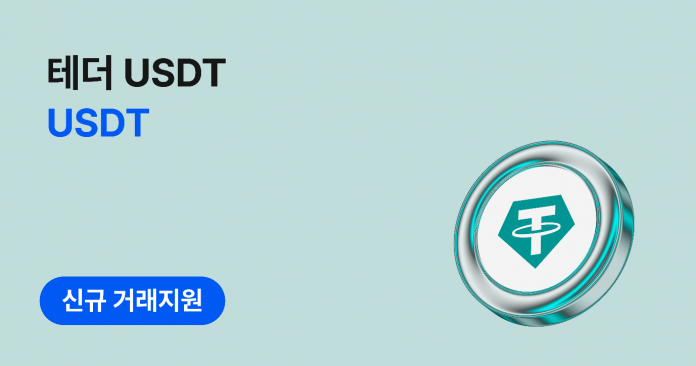
Coinone surprisingly listed Tether (USDT) at 17:00 on the 30th of last month. Among domestic exchanges, Coinone is expected to be the first to list Tether, making it easier to move domestic and international assets through Tether.
Tether is a cryptocurrency that tracks the value of the US dollar (USD) and has the value of ‘1 Tether = 1 dollar’, occupies more than 75% of the global stablecoin market, and It ranks 3rd in cryptocurrency market capitalization. As such, Tether has considerable influence in the industry, but transactions have not been carried out in the domestic won market so far. If you want to exchange won for dollars at an existing bank, you have to pay a fee of 1.5 to 2 percent. However, because Tether, which is pegged to the dollar, can be transferred and exchanged much more cheaply, exchanges conscious of government regulations have been reluctant to list Tether. In this difficult situation, Coinone is attracting more attention because it aggressively listed Tether.
Experts say that there are no major problems with Coinone’s listing of Tether because there are no guidelines or related laws for the issuance and distribution of virtual assets. However, since stablecoins are similar to prepaid payment methods under the Electronic Financial Transactions Act, a regulatory system may be established through future revisions to the Electronic Financial Transactions Act.
Tether is very useful in that its value is tied to the dollar. Those who use overseas cryptocurrency exchanges mainly use Ripple (XRP) and Tron (TRX), which have fast transfer speeds and low fees when transferring money between exchanges. However, because the prices of these coins fluctuate in real time, losses may occur during the remittance process. In this case, if you remit money using Tether, which maintains the price of fiat currency, you have the advantage of minimizing the risk of price fluctuations.
Additionally, as Tether transactions and deposits and withdrawals become possible, the Kimchi premium is expected to decrease. Kimchi Premium is a numerical representation of how much higher the price of virtual assets traded in Korea is compared to overseas exchanges. In Korea, it is relatively difficult to move virtual assets through overseas exchanges, so problems such as ‘artificial price manipulation’ have frequently occurred. However, once Tether’s stable deposits and withdrawals become possible, it is expected that funds will be easier to move between exchanges and arbitrage will become smoother. And in this process, the price is balanced, so the kimchi premium is expected to decrease.
Meanwhile, Coinone is believed to have listed Tether to aggressively increase its market share in the local cryptocurrency market. Currently, Upbit accounts for more than 80% of domestic cryptocurrency trading volume, while Coinone has a share of less than 3%. Ultimately, Coinone’s intention is to increase the inflow of whales along with increasing trading volume within Coinone by listing foreign key currencies on the domestic won exchange for the first time. Many industry officials are closely watching the current situation to see if Coinone can serve as a gateway to entering overseas exchanges in the future.










